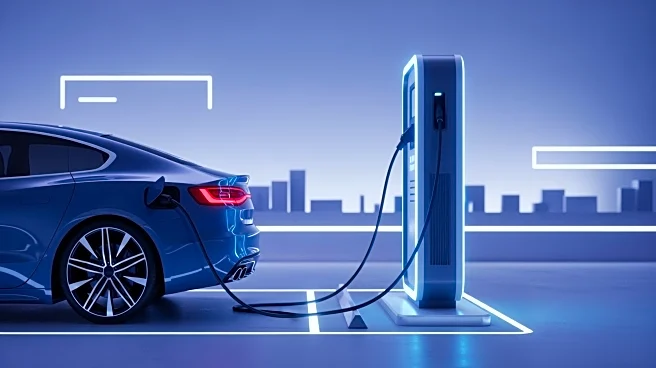What's Happening?
BYD is making strategic moves to expand its electric vehicle presence in Japan, a market traditionally dominated by domestic brands. At the Japan Mobility Show 2025, BYD unveiled new commercial vehicles,
including the T35 truck and J6 'Living Car' concept. The company has also partnered with AEON, a major operator of shopping malls and supermarkets, to establish electric vehicle sales outlets in approximately 30 commercial facilities across Japan. This partnership marks a significant shift from the traditional dealership model, potentially opening the market to new brands. Additionally, BYD plans to reduce the price of its Seal model while increasing equipment levels, aiming to boost sales in a market where EV penetration remains low.
Why It's Important?
BYD's expansion into Japan represents a potential shift in the country's automotive market, which has been resistant to foreign brands and slow to adopt electric vehicles. The partnership with AEON could facilitate greater consumer access to BYD's offerings, challenging the dominance of Japanese automakers. This move may also encourage domestic brands to enhance their EV strategies, potentially accelerating global EV adoption. Furthermore, BYD's pricing strategy could make electric vehicles more accessible to Japanese consumers, increasing competition and driving innovation in the industry.
What's Next?
BYD's partnership with AEON and its pricing strategy could lead to increased market penetration in Japan, potentially influencing other foreign brands to enter the market. As BYD continues to expand its lineup and distribution channels, Japanese automakers may need to respond with more competitive EV offerings. The success of BYD's strategy could also impact global EV market dynamics, encouraging other countries to adopt similar distribution models.
Beyond the Headlines
The partnership between BYD and AEON could have broader implications for retail and automotive industries, as it challenges traditional dealership models and introduces new ways for consumers to purchase vehicles. This shift may lead to increased collaboration between automakers and retail giants, transforming how vehicles are marketed and sold.









